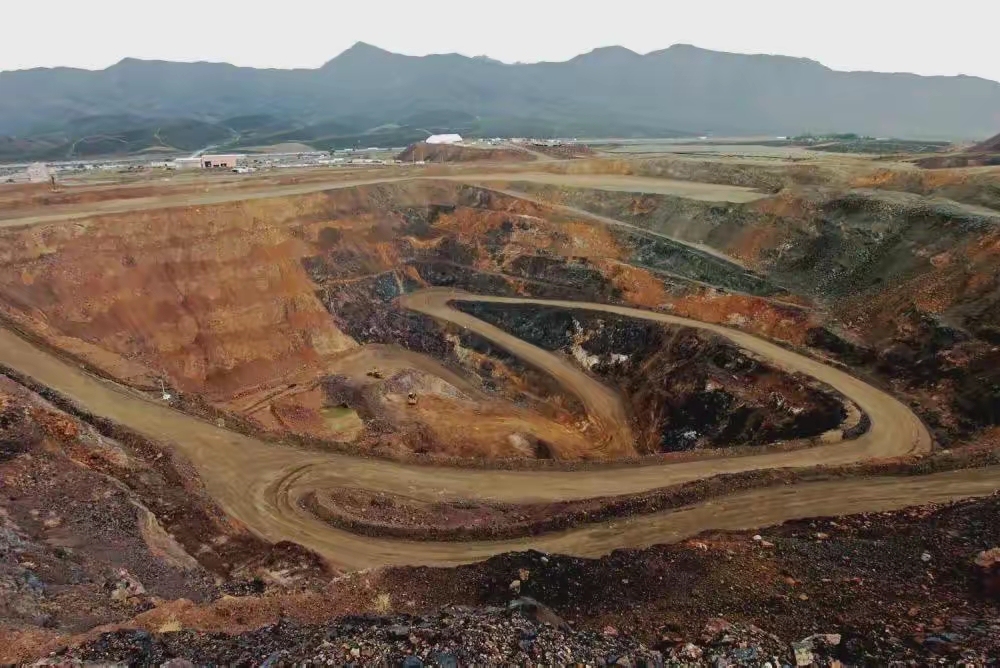
Recently, the draft agreement between the United States and Ukraine regarding rare earth resources has attracted widespread attention. US President Trump is putting pressure on Ukrainian President Zelensky to allow the US to benefit from all undeveloped resources in Ukraine, with rare earth resources being the focus. This inevitably raises questions about the commercial value of Ukraine's rare earth resources to the United States?
From the perspective of reserves, the actual situation of rare earth resources in Ukraine is not clear. Although some believe that Ukraine has one of the largest rare earth deposits in Europe, with reserves worth up to $500 billion, there are also many different voices internationally. Experts from the United States Geological Survey pointed out that although Ukraine has mineral deposits containing rare earth elements, they have not been developed to date. The international rating agency Standard&Poor's reported that the Ukrainian government's predictions of rare earth resources are mostly based on Soviet era assessments, and their mining does not have actual commercial profit margins. Bloomberg and other US media have also revealed that Ukraine's rare earth resources have limited reserves and lack mining conditions. Compared to the world's major rare earth reserve countries, Ukraine finds it difficult to rank among the top. For example, China has reserves of approximately 44 million tons, accounting for 37% of the global total; Vietnam has reserves of about 22 million tons, accounting for 18% of the world's total, while Ukraine's reserves do not even rank in the top ten according to many authoritative statistics. This indicates that Ukraine's rare earth reserves may be overestimated, and its commercially viable scale is questionable.
The difficulty of mining and processing is an important factor in measuring the commercial value of Ukraine's rare earth resources to the United States. Mining rare earths requires a large amount of capital, advanced technology, and a stable environment. At present, Ukraine has suffered from war and its economy is riddled with problems. Its GDP will shrink to less than 100 billion US dollars by 2024, and it lacks funds and a stable environment for large-scale rare earth mining. It is estimated that the start-up capital for the development of the largest known rare earth metal deposit in Ukraine is 300 million US dollars, which is a heavy burden for the Ukrainian government. In terms of processing, rare earth processing technology is complex and requires a sound industrial system support. Although Ukraine has a certain level of industrial foundation, it is difficult to meet the requirements for deep processing of rare earths under the impact of war. If the United States wants to participate in mining and processing, it will need to invest huge amounts of money in building infrastructure and technical teams, which undoubtedly increases business costs and risks.
From a market perspective, the supply, demand, and price situation of the global rare earth market also affect the commercial value of Ukraine's rare earth resources to the United States. The global rare earth market is relatively small in scale and the supply is relatively concentrated. At present, the global rare earth market value is about 32 billion US dollars. Although it is expected to double in the next five years, it still lags behind other commodity markets. Moreover, there is no shortage of global rare earth supply, and China, as the largest producer, controls the majority of global rare earth production. In addition, other countries are also constantly developing rare earth resources, such as Vietnam and Australia. In this situation, even if the United States obtains the mining rights for rare earth resources in Ukraine, it will face fierce competition after entering the market. If a large amount of rare earth is put into the market, it may lead to a decline in rare earth prices and affect commercial profits; If production is limited and it is difficult to recover investment costs in the short term.
The United States' attempt to acquire rare earth resources from Ukraine is driven by geopolitical and strategic considerations. 80% of rare earths in the United States rely on imports, with the majority coming from China. This supply pattern makes the United States feel strategically constrained. The United States hopes to fill the gap in its domestic rare earth supply chain by controlling Ukraine's rare earth resources, taking the initiative in resource competition with China, and consolidating its strategic position in global economic and military competition. But this is more from a strategic perspective, and the commercial feasibility and profitability still need to be carefully evaluated. From a business perspective, the direct commercial value of Ukraine's rare earth resources to the United States is limited. Factors such as unknown reserves, difficulty in mining and processing, and fierce market competition have all made it difficult for the United States to obtain high commercial profits from Ukraine's rare earth resources. However, at the geopolitical and strategic level, the United States' pursuit of Ukraine's rare earth resources has deeper significance, and behind this behavior are complex economic, political, and strategic interests intertwined.

According to Bloomberg, a recent in-depth interview with Michael Dehal, senior portfolio manager at Raymond James' Dehal Investment Partnership, was released, focusing on the economic development prospects and potential risks of Canada and the United States in 2026.
According to Bloomberg, a recent in-depth interview with Mi…
TikTok Shop, the global e-commerce platform under ByteDance…
As a severe flu outbreak sweeps across the United States, w…
Recently, US Treasury Secretary Mnuchin publicly stated tha…
At the dawn of 2026, the United States launched a military …
From the stiff step when it first debuted in 2022 to demons…